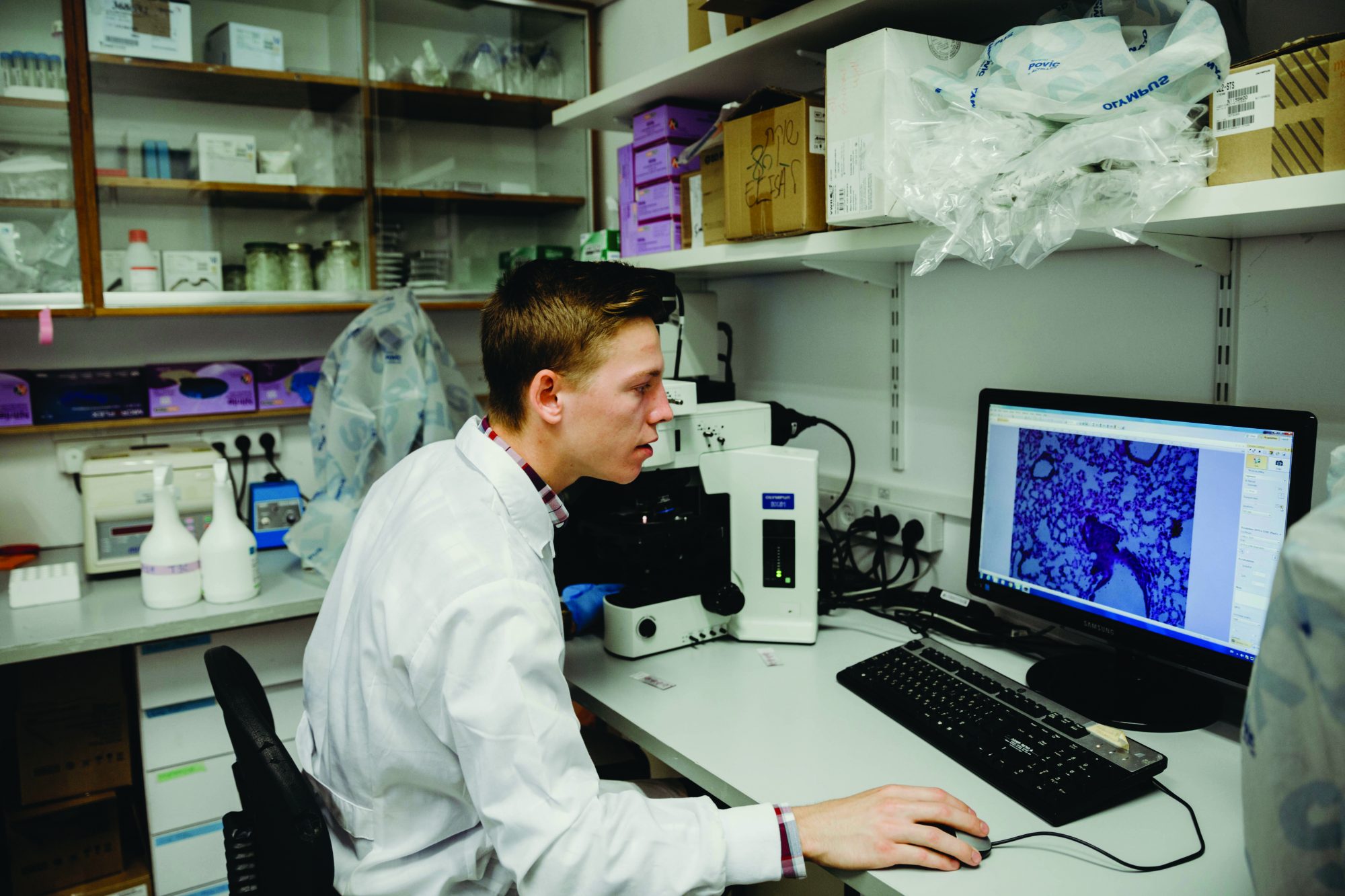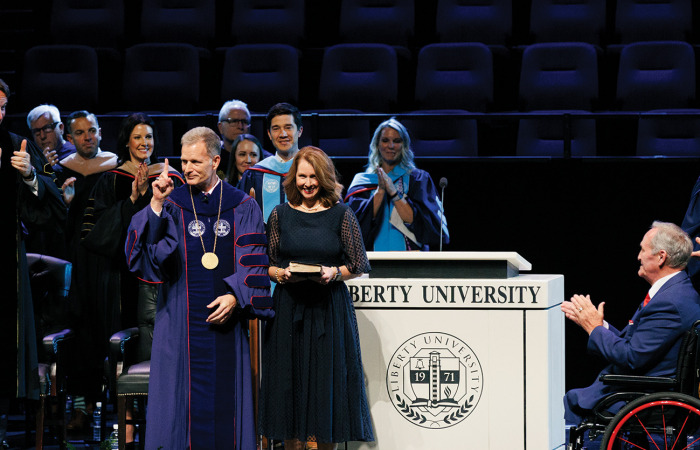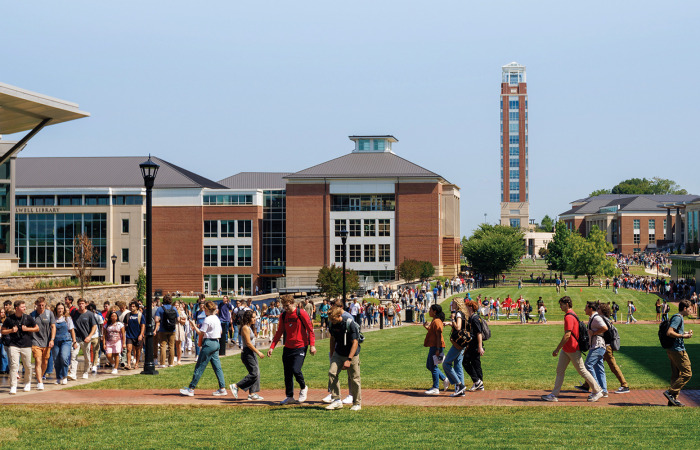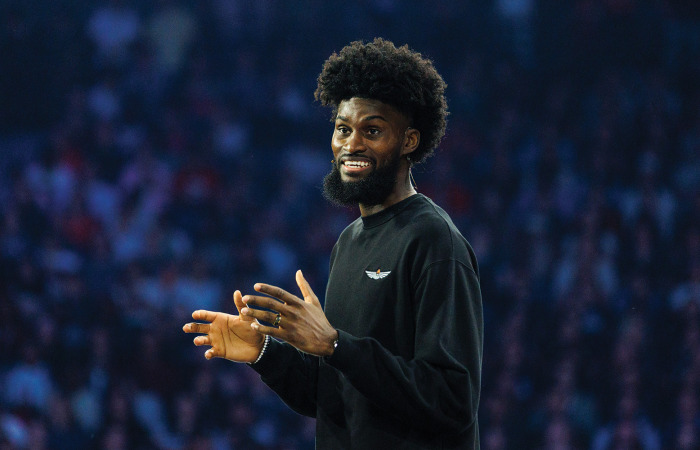Thanks to a new partnership between Liberty University and Hebrew University, one of the most prestigious universities in Israel, two Liberty pre-med students spent part of the summer conducting tests for treating cancer and brain trauma.
Seniors and best friends Joseph Bantseev (pictured above) and Nicholas Minner interned at the Hadassah Hospital Ein Kerem, Hebrew University’s hospital and medical research institute. They worked in collaboration with Yale University and with acclaimed Hebrew University scientist Dr. Tal Burstyn-Cohen, who heads the Jerusalem Brain Community.
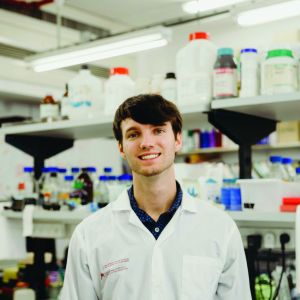
Nicholas Minner
Bantseev and Minner conducted tests on mice to understand the mechanism of inflammation in humans.
“I look back at the things God enabled us to do, and I’m blown away,” Minner said. “We were thankful to be able to represent our university in such a high-caliber collaboration, and it was amazing to be part of that work and to know that our names will now be published on it.”Both Minner and Bantseev spent much of their childhoods overseas with their missionary families — Minner’s to Thailand and Bantseev’s to Russia — and they both chose to study biomedical sciences after seeing health crises in those countries. They want to work in the medical field to treat others, serve God, and, as Bantseev said, “be there for people in some of the most critical moments of their life.”
Bantseev went on an LU Send trip to Israel during the summer of 2018, and months later, after hearing about the progress that Israel is making in cancer treatments, he became enamored with the idea of returning and playing a role in that. One day, he prayed that God would take him there again, and the next day, he was asked by David Welch, executive director of LU Send, if he would be interested in going to Israel through the new partnership with Hebrew University. Meanwhile, Minner was searching for an internship between his junior and senior years and crossed paths with Welch at the campus post office. He asked him the same question. The friends applied and received their lab placements.
Although their time in Israel centered around scientific research and long hours in the lab, the students did find opportunities to enjoy national landmarks. They often packed their swimsuits for visits to the Dead Sea after work or went on a sunrise hike to Masada before clocking in for a full day of lab time.
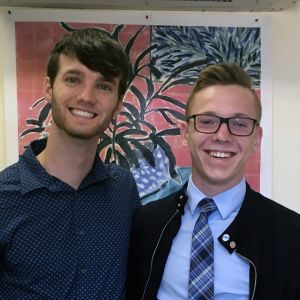
Nicholas Minner (left) and Joseph Bantseev (right)
“Second to the lab work, what really characterized our time there was being able to see Israel itself by walking where Jesus walked, seeing the tomb, and witnessing all of these sites that we’ve read about in the Bible,” Minner said.
Another opportunity that they did not waste was with their colleagues, when the topic of conversation would move from the test subjects to the origins of the cells they saw under the microscope.
“As scientists, we were able to share how biology and archaeology confirm the stories in the Bible,” Minner said. “This enabled us to speak on creation, the fall, and the life of Christ as it gives us hope for the future.”
They said they hope to have sparked curiosity in the hearts and minds of their peers.
“We believe we were there to plant some seeds, and it’s those things that I treasure, being able to witness for Christ in that environment,” Minner said.
“We want to exemplify Christ in everything we do, and we want to allow Him to direct our lives,” Bantseev added. “We want to excel in our field and make major progress in medical sciences, but it’s all about how we can use our work to point back to God.”
DID YOU KNOW?
In a November 2016 travel interest survey conducted of over 6,000 participants, Liberty University students chose Israel over all other international destinations to visit.
